cAMP
How to submit an article:
- Registered users can submit any published journal article that has a unique DOI (Digital Object Identifier) name or link to Research Hub.
- For example, you can paste the full DOI link:
https://doi.org/10.1109/5.771073or just the DOI name:10.1109/5.771073into the field above and click submit. - The person who is first to submit a valid article to Research Hub will forever be credited for it, and every article submission earns you +6 Research Points.
Cyclic adenosine monophosphate (cAMP) is a molecule that serves as a second messenger in intracellular signaling and plays a key role in regulating many physiological processes in the body.
Also known as: Cyclic Adenosine Monophosphate
Related Topics
Published research studies are articles that present the findings of original research that has undergone a peer-review process and has been made publicly available in scholarly journals, books or other media.

In vitro antibacterial activity of Morinda citrifolia extracts against eight pathogenic bacteria species
2024 Oct 30 PLOS One Obeng-Boateng F, Kpordze SW, Addy F
Experimental Study Campylobacter Antibacterial NoniMorinda citrifolia root extracts display significant antibacterial activity against various bacteria, with the highest impact against Campylobacter spp.

Effects of Pueraria lobata root and Glycine max (L.) Merrill extracts fermented with Lactiplantibacillus plantarum on the depressive-like behavior in ovariectomized mice via upregulation of hippocampal BDNF
2023 Sep Journal of Functional Foods Ha J, Jang HM, Choi I
Animal Study Experimental Study Bacillus Soybean Depression Ge GenFermented Pueraria lobata root extract and Glycine max extract showed estrogen-like activities, reducing depressive symptoms in menopausal mice but not increasing female cancer risks.
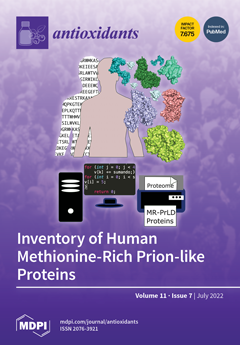
Adenophora Stricta Root Extract Alleviates Airway Inflammation in Mice with Ovalbumin-Induced Allergic Asthma
2023 Apr 13 Antioxidants Jung CJ, Park SM, Lee DG, Yu YE, Ku TH, La IJ, et al.
The present results clearly showed that Adenophora stricta root extract (AsE) can protect the lung from allergic asthma by reducing the infiltration of inflammatory cells, as well as the production of T helper 2 lymphocyte-dependent cytokines. If several remaining issues are appropriately addressed in the future, AsE will be a promising nutraceutical for protecting the lungs by managing airway inflammation.
Network Pharmacology Animal Study Anti-Inflammatory Sha Shen Asthma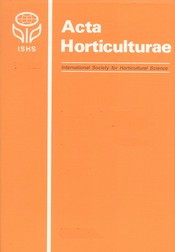
Advances on cAMP research in Chinese jujube fruit
2022 Nov Acta Horticulturae Yuan Y, Liu ZG, Feng C, Liu MJ
Review Article cAMP JujubeChinese jujube contains cAMP, a compound usually absent in plant cells, which may accelerate our understanding of plant cAMP metabolism.

Anshen Dingzhi prescription in the treatment of PTSD in mice: Investigation of the underlying mechanism from the perspective of hippocampal synaptic function
2022 Jul Phytomedicine Yang S, Qu Y, Wang J, Gao F, Ji M, Xie P, et al.
Administration of Anshen Dingzhi prescription (ADP) improved PTSD-like behaviors in mice, potentially mediated through an mTOR-dependent improvement in synaptic function in the hippocampus.
Experimental Study Animal Study PTSD An Shen Ding Zhi decoctionResearch insights are moderated by the Research Hub team and offer an at-a-glance overview of interesting research findings.

2024 PLOS One
Morinda citrifolia root extracts display significant antibacterial activity against various bacteria, with the highest impact against Campylobacter spp.
Experimental Study Antibacterial Campylobacter Noni
In vitro antibacterial activity of Morinda citrifolia extracts against eight pathogenic bacteria species
Obeng-Boateng F, Kpordze SW, Addy F

2023 Journal of Functional Foods
Fermented Pueraria lobata root extract and Glycine max extract showed estrogen-like activities, reducing depressive symptoms in menopausal mice but not increasing female cancer risks.
Animal Study Bacillus Depression Ge Gen Soybean
Effects of Pueraria lobata root and Glycine max (L.) Merrill extracts fermented with Lactiplantibacillus plantarum on the depressive-like behavior in ovariectomized mice via upregulation of hippocampal BDNF
Ha J, Jang HM, Choi I

2022 Acta Horticulturae
Chinese jujube contains cAMP, a compound usually absent in plant cells, which may accelerate our understanding of plant cAMP metabolism.
Review Article Jujube
Advances on cAMP research in Chinese jujube fruit
Yuan Y, Liu ZG, Feng C, Liu MJ
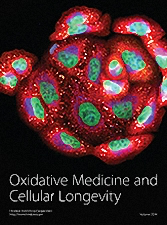
2021 Oxidative Medicine and Cellular Longevity
Pumpkin extract exhibits potential antidepressant effects similar to fluoxetine and ameliorates biochemical and structural changes in rat brains resulting from chronic stress.
Animal Study Chronic Stress Fluoxetine Pumpkin Seed Stress
L. Cucurbita pepo Alleviates Chronic Unpredictable Mild Stress via Modulation of Apoptosis, Neurogenesis, and Gliosis in Rat Hippocampus
Ayuob N, Shaker SA, Hawuit E, Al-Abbas N, Shaer NA, Al Jaouni S, et al.

2021 Antioxidants
Pomegranate juice extract (PPJE) appears to reduce chemotherapy-induced skin side effects by inhibiting inflammation and promoting wound repair on the skin.
Experimental Study Chemotherapy Oxidative Stress Pomegranate Wound Healing
Protective Effect of Pomegranate on Oxidative Stress and Inflammatory Response Induced by 5-Fluorouracil in Human Keratinocytes
Rapa SF, Magliocca G, Pepe G, Amodio G, Autore G, Campiglia P, et al.
Review Articles
Review articles summarise and critically evaluate the current state of research on a specific topic or field by synthesising multiple primary research studies.

Advances on cAMP research in Chinese jujube fruit
2022 Nov Acta Horticulturae Yuan Y, Liu ZG, Feng C, Liu MJ
Review Article cAMP JujubeChinese jujube contains cAMP, a compound usually absent in plant cells, which may accelerate our understanding of plant cAMP metabolism.

Effect of fenugreek supplementation on blood lipids and body weight: A systematic review and meta-analysis of randomized controlled trials
2021 Jan Journal of Ethnopharmacology Askarpour M, Alami F, Campbell MS, Venkatakrishnan K, Hadi A, Ghaedi E.
Systematic Review Meta-AnalysisFenugreek supplementation improved lipid parameters in adults.

The most important medicinal plants affecting sperm and testosterone production: a systematic review
2021 Jan JBRA Assisted Reproduction Boroujeni SN, Bossaghzadeh F, Malamiri FA, Esmaeili A, Moudi E
The study concludes that certain medicinal plants, such as Apium graveolens, Cinnamomum camphora, Cornus mas, Satureja khuzestanica, Withania somnifera, Fumaria parviflora, zingiber officinale, cinnamomum zeylanicum, and Phoenix dactylifera, have potential in increasing fertility due to their antioxidant power and low side effects.
Systematic Review Ceylon Cinnamon Testosterone Sperm Quality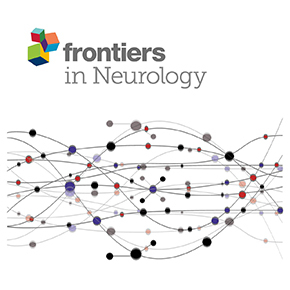
Acupuncture vs. Pharmacological Prophylaxis of Migraine: A Systematic Review of Randomized Controlled Trials
2020 Dec 15 Frontiers in Neurology Giovanardi CM, Cinquini M, Aguggia M, Allais G, Campesato M, Cevoli S, et al.
Systematic ReviewBased on moderate certainty of evidence, we conclude that acupuncture is mildly more effective and much safer than medication for the prophylaxis of migraine.
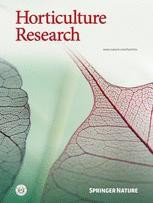
The historical and current research progress on jujube-a superfruit for the future
2020 Aug 1 Horticulture Research Liu, M., Wang, J., Wang, L. et al.
Review Article cAMP JujubeIn jujube fruit, the contents of sugar, vitamin C, and cyclic adenosine monophosphate (cAMP) are around 2, 100, and 1000 times those of apple, respectively.
Clinical Trials
Clinical trials are research studies that involve people and are conducted to evaluate the safety and efficacy of new treatments or interventions, such as drugs, medical devices, or behavioural therapies.

S1 Brain Connectivity in Carpal Tunnel Syndrome Underlies Median Nerve and Functional Improvement Following Electro-Acupuncture
2021 Oct 27 Frontiers in Neurology Fisher H, Sclocco R, Maeda Y, Kim J, Malatesta C, Gerber J, et al.
In summary, we have demonstrated that Carpal Tunnel Syndrome (CTS) pathology and electro-acupuncture (EA) therapy affect functional connectivity not only within S1 regions, but also between S1 and subcortical regions such as the pulvinar and anterior hippocampus. Furthermore, we provide evidence that assessing functional connectivity not just during rest but also during EA application can reveal novel insights into brain-focused mechanisms supporting peripheral neuromodulation therapy.
Randomised Controlled Trial Carpal Tunnel Syndrome Electroacupuncture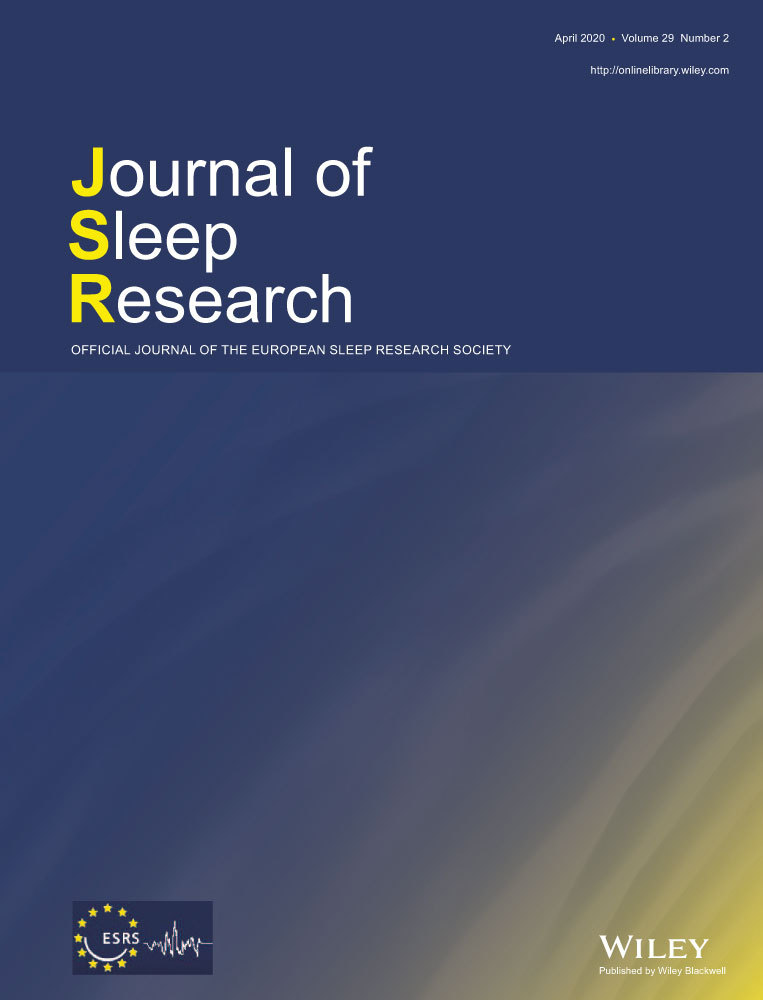
Japanese sake yeast supplementation improves the quality of sleep: a double‐blind randomised controlled clinical trial
2015 Sep 10 Journal of Sleep Research Monoi N, Matsuno A, Nagamori Y, Kimura E, Nakamura Y, Oka K, et al.
Given these benefits and the absence of adverse effects during the study period, it was concluded that sake yeast supplementation is an effective and safe way to support daily high-quality, deep sleep.
Clinical Study Randomised Controlled Trial Insomnia Sake Yeast cAMP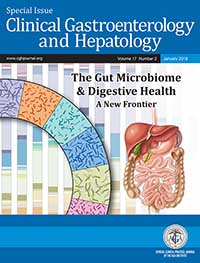
Efficacy and Safety of a Magnesium Sulfate–Rich Natural Mineral Water for Patients With Functional Constipation
2014 Aug Clinical Gastroenterology and Hepatology Dupont C, Campagne A, Constant F
Randomised Controlled Trial Mineral Water Constipation MagnesiumDrinking 1 liter of Hépar, a magnesium sulfate-rich mineral water, daily reduces constipation and hard or lumpy stools more effectively than low-mineral water in women.
Study Protocols
Published study protocols are detailed plans that outline the objectives, methodology, statistical analyses, and organisation of a research study that have been made publicly available for others to review and use as a reference.
Presentation Slides

Experimental Study
Morinda citrifolia root extracts display significant antibacterial activity against various bacteria, with the highest impact against Campylobacter spp.
Obeng-Boateng F, Kpordze SW, Addy F

Animal Study
Fermented Pueraria lobata root extract and Glycine max extract showed estrogen-like activities, reducing depressive symptoms in menopausal mice but not increasing female cancer risks.
Ha J, Jang HM, Choi I

Review Article
Chinese jujube contains cAMP, a compound usually absent in plant cells, which may accelerate our understanding of plant cAMP metabolism.
Yuan Y, Liu ZG, Feng C, Liu MJ

Animal Study
Pumpkin extract exhibits potential antidepressant effects similar to fluoxetine and ameliorates biochemical and structural changes in rat brains resulting from chronic stress.
Ayuob N, Shaker SA, Hawuit E, Al-Abbas N, Shaer NA, Al Jaouni S, Mahdi MR

Experimental Study
Pomegranate juice extract (PPJE) appears to reduce chemotherapy-induced skin side effects by inhibiting inflammation and promoting wound repair on the skin.
Rapa SF, Magliocca G, Pepe G, Amodio G, Autore G, Campiglia P, Marzocco S

Systematic Review
Fenugreek supplementation improved lipid parameters in adults.
Askarpour M, Alami F, Campbell MS, Venkatakrishnan K, Hadi A, Ghaedi E.

Systematic Review
Based on moderate certainty of evidence, we conclude that acupuncture is mildly more effective and much safer than medication for the prophylaxis of migraine.
Giovanardi CM, Cinquini M, Aguggia M, Allais G, Campesato M, Cevoli S, Gentili F, Matrà A and Minozzi S

Review Article
In jujube fruit, the contents of sugar, vitamin C, and cyclic adenosine monophosphate (cAMP) are around 2, 100, and 1000 times those of apple, respectively.
Liu, M., Wang, J., Wang, L. et al.
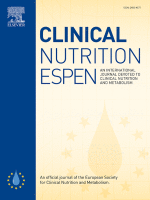
Systematic Review
Cinnamon supplementation can improve blood pressure by a modest degree.
Hadi A, Campbell MS, Hassani B, Pourmasoumi M, Salehi-sahlabadi A, Hosseini SA
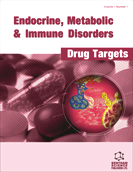
Systematic Review
Cinnamon supplementation has favorable effects on diastolic blood pressure and long-term effects on systolic blood pressure.
Hadi A, Campbell MS, Hassani B, Pourmasoumi M, Salehi-Sahlabadi A, Hosseini SA.
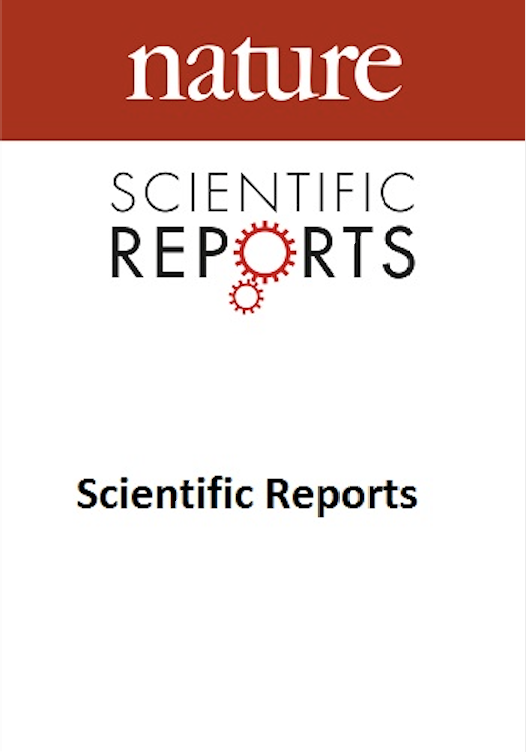
Animal Study
Acupuncture can alleviate PTSD-related depression and anxiety by boosting protein synthesis required for synaptic plasticity via the mTOR pathway in the hippocampus.
Oh JY, Kim YK, Kim SN, Lee B, Jang JH, Kwon S, Park HJ

Review Article
Jujube possesses neuroprotective activities, including protecting neuronal cells against neurotoxin stress, stimulating neuronal differentiation, increasing expression of neurotrophic factors, and promoting memory and learning.
Chen J, Liu X, Li Z, et al.
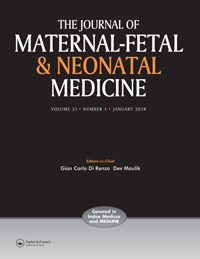
Case Report
Chamomile consumption may stimulate abundant milk production and increase lactogenesis in lactating women.
Silva FV, Dias F, Costa G, Campos MG

Randomised Controlled Trial
Drinking 1 liter of Hépar, a magnesium sulfate-rich mineral water, daily reduces constipation and hard or lumpy stools more effectively than low-mineral water in women.
Dupont C, Campagne A, Constant F
Executive Summary
Write an executive summary in the form of a blog article on the topic of "Research into Chinese medicine treatment for cAMP" summarising the research below and using language that can be easily understood by patients and avoiding medical jargon using a professional and caring tone of voice.
Write an executive summary in the form of a blog article on the topic of "Researched Chinese medicine treatments for cAMP" summarising the research below in an objective and easy to understand way, and using language that can be easily understood by patients. Group the article into Chinese medicine treatments first, followed by nutrition and other treatments. Avoid using medical jargon and use a professional and caring tone of voice.
Write me a concise but easy to understand executive summary on the topic of "Chinese medicine treatments for cAMP" based on the following research that I will give you. Your summary should be 2 paragraphs long in Australian English spelling and include references to the studies.
A Experimental Study published in 2024 in the journal PLOS One found that Morinda citrifolia root extracts display significant antibacterial activity against various bacteria, with the highest impact against Campylobacter spp. The study investigates the antibacterial properties of various forms of Morinda citrifolia (root, leaf, and fruit- fresh, dried, and fermented). These were extracted through distilled water and varied concentrations of ethanol(60%, 80%, 100%). The antibacterial assessments were conducted using the agar well diffusion method, utilizing Ciprofloxacin as a positive control. While all forms of the plant showed some degree of antibacterial performance, the root extracts were found to have the most significant influence. The analysis of the results reveals a variance in antibacterial activity amongst the different extracts and the concentration of the solvents used. Among the solvents, the 100% ethanol extracts showed the most significant zones of inhibition. Certain bacteria, such as Enterococcus faecium, Campylobacter spp., and Bacillus cereus, were found to be more sensitive to the plant extracts. In contrast, Shigella spp. and Klebsiella spp. demonstrated resistance to most of the extracts. The study concludes a promising potential for antibacterial applications of M. citrifolia extracts.
A Animal Study published in 2023 in the journal Journal of Functional Foods found that Fermented Pueraria lobata root extract and Glycine max extract showed estrogen-like activities, reducing depressive symptoms in menopausal mice but not increasing female cancer risks. The researchers focused on Pueraria lobata roots and Glycine max (also known as soybeans) extracts, which are rich in isoflavones but often limited in practical use due to their high molecular weight and low bioavailability. The researchers chose to ferment these extracts with Lactiplantibacillus plantarum strains which are known to convert glycosides to aglycones, potentially enhancing the beneficial effects of the isoflavones. Specifically, the study was conducted using ovariectomized mice. The research found that both fermented Pueraria lobata root extract and Glycine max extract exhibited estrogen-like activities. More intriguingly, the fermentation process increased the expression of estrogen receptor beta, suggesting that these extracts may not increase the risk of various female cancers—a common side effect of hormone replacement therapy—as was previously believed. Also, the ingestion of these extracts not only increased the estrogen receptor beta in the mice but also upregulated the expression of the brain-derived neurotrophic factor in the hippocampal region of the brain, thus improving depressive symptoms. The highest expression was observed in the group given a mixture of both extracts.
A Review Article published in 2022 in the journal Acta Horticulturae found that Chinese jujube contains cAMP, a compound usually absent in plant cells, which may accelerate our understanding of plant cAMP metabolism. The research process involved the separation and measurement of the cAMP compound in Chinese jujube fruit. Various techniques were applied to determine changes in cAMP content throughout fruit development. In addition, the researchers differentiated the cAMP concentration among various cultivars. The findings of the study indicated that cAMP, usually absent in plant cells, is present in the fruits of Chinese jujube. This was determined by identifying subtle variations in the cAMP content during fruit development and across different cultivars. Furthermore, potential adenylate cyclase genes were identified, providing a new perspective to the study of cAMP metabolism in plants.
A Animal Study published in 2021 in the journal Oxidative Medicine and Cellular Longevity found that Pumpkin extract exhibits potential antidepressant effects similar to fluoxetine and ameliorates biochemical and structural changes in rat brains resulting from chronic stress. The researchers used forty male albino rats, split into four different groups: a negative control group, a chronic unpredictable mild stress (CUMS) group, a fluoxetine-treated group, and a pumpkin-treated group. These rats were exposed to CUMS for 28 days, with the treatments applied during the last 14 days of this exposure period. After these 28 days, the scientists evaluated the behavioral, biochemical, and histopathological alterations in these rats. The application of pumpkin extract significantly reduced markers of stress and inflammation, while increasing antioxidant levels. Additionally, the extract helped reduce structural damage in the hippocampal region of the brain caused by exposure to CUMS. These effects were comparable to those observed by administering fluoxetine, a conventional antidepressant.
A Experimental Study published in 2021 in the journal Antioxidants found that Pomegranate juice extract (PPJE) appears to reduce chemotherapy-induced skin side effects by inhibiting inflammation and promoting wound repair on the skin. In this study, the impact of pomegranate (L.) juice extract (PPJE) on skin cells treated with 5-Fluorouracil (5-FU), an antineoplastic agent, was evaluated. This involved assessing the extract's ability to inhibit the release of reactive oxygen species and enhance the cellular antioxidant response of the treated skin cells. Specific attention was given to observe the overexpression of cytoprotective enzymes such as heme oxygenase-1 and NAD(P)H dehydrogenase [quinone] 1 after the introduction of PPJE. The results indicated that PPJE indeed blocked the formation of nitrotyrosine and reduced the release of cytokines, therefore indicating a dampened inflammatory response. Furthermore, it was revealed that the extract could inhibit the nuclear translocation of p65-NF-κB, a key regulator of inflammation. The study also pointed out that PPJE could curb apoptosis in cells treated with 5-FU, whilst fostering wound repair. The overall findings suggest that PPJE holds potential as a supplementary agent for managing oxidative and inflammatory issues associated with chemotherapy-induced skin side effects.
A Systematic Review published in 2021 in the journal Journal of Ethnopharmacology found that Fenugreek supplementation improved lipid parameters in adults. A meta-analysis of 12 RCTs (14 arms) with 560 participants suggested a significant decrease in plasma concentrations of total cholesterol, triglycerides, and low density lipoprotein cholesterol, as well as an increase in plasma high density lipoprotein cholesterol, while body weight and body mass index were not altered.
A Systematic Review published in 2020 in the journal Frontiers in Neurology found that Based on moderate certainty of evidence, we conclude that acupuncture is mildly more effective and much safer than medication for the prophylaxis of migraine. We included in our meta-analysis 9 studies, with a total of 1,484 participants that compared acupuncture with pharmacological prophylaxis for the prevention of migraine attacks in adults with chronic or episodic migraine. We found moderate quality of evidence that acupuncture is mildly more effective than any pharmacological prophylaxis in reducing the days with migraine per month, pain intensity, drop out from treatment, though the magnitude of the differences was small. We also found moderate quality of evidence that acupuncture is more effective than pharmacological prophylaxis in increasing the response rate to treatments and quality of life, but the magnitude of the differences was small. Conversely, we found moderate quality of evidence of a strong reduction in favor of acupuncture in both the dropout rate due to any and in the dropout rate due to adverse event.
A Review Article published in 2020 in the journal Horticulture Research found that In jujube fruit, the contents of sugar, vitamin C, and cyclic adenosine monophosphate (cAMP) are around 2, 100, and 1000 times those of apple, respectively. The fruit is particularly rich in nutrients, and its contents of sugar, vitamin C and B, cyclic nucleotide, proline, triterpenic acid, potassium, iron, and zinc are the highest among many fruits. The contents of sugar, vitamin C, and cyclic adenosine monophosphate (cAMP) are around 2, 100, and 1000 times those of apple, respectively. The fruit is also a rich source of polysaccharides, triterpenic acids, flavonoids, alkaloids, polyphenols, and pigments.
A Systematic Review published in 2020 in the journal Clinical Nutrition ESPEN found that Cinnamon supplementation can improve blood pressure by a modest degree. Meta-analysis of 9 RCTs with 641 participants showed significant reductions in both systolic (WMD: −5.17 mmHg, 95% CI: −9.35 to −0.99, P = 0.01) and diastolic blood pressure (WMD: −3.36 mmHg, 95% CI: −5.67 to −1.04, P ≤ 0.001) after cinnamon supplementation. Subgroup analyses indicated that these results were significant only when cinnamon was administered at the dosages of ≤2 g/day, for a period longer than 8 weeks, and in participants with a baseline BMI of ≥30 kg/m2.
A Systematic Review published in 2020 in the journal Endocrine, Metabolic & Immune Disorders - Drug Targets found that Cinnamon supplementation has favorable effects on diastolic blood pressure and long-term effects on systolic blood pressure. Out of 927 records, 8 trials that enrolled 582 participants were included. The pooled effect size showed that systolic blood pressure did not change following cinnamon supplementation. Also cinnamon supplementation in long-duration (≥ 8weeks) had a significant effect on systolic blood pressure. Pooled analysis showed that cinnamon had a significant effect on diastolic blood pressure. In addition, results from both duration subsets and high dose (>1500 mg/day) of cinnamon supplementation were significant.
A Animal Study published in 2018 in the journal Scientific Reports found that Acupuncture can alleviate PTSD-related depression and anxiety by boosting protein synthesis required for synaptic plasticity via the mTOR pathway in the hippocampus. The researchers conducted their study by observing a PTSD rat model that had been induced with a single prolonged stress (SPS). They administered acupuncture at HT8, a known acupuncture point, and gathered data on the ensuing behavioral changes using the forced swimming, elevated plus maze, and open field tests. They compared these results with those achieved using fluoxetine, a common antidepressant drug. They aimed to probe the underlying mechanisms by which acupuncture might work by studying its effect on protein translation in the mTOR signaling pathway and its subsequent enhancement of the activation of synaptic proteins such as PSD95, Syn1, and GluR1 in the hippocampus. The effects of acupuncture at HT8 point resulted in a significant alleviation in both depression and anxiety-like behaviors that had earlier been induced by SPS in the rat test subjects. This alleviation of symptoms was disrupted by the administration of rapamycin. These results are comparable to those brought about by the use of fluoxetine. The results further show that acupuncture aids in regulating protein translation in the mTOR signaling pathway, boosting the activation of synaptic proteins like PSD95, Syn1, and GluR1 in the hippocampus.
A Review Article published in 2017 in the journal Evidence-Based Complementary and Alternative Medicine found that Jujube possesses neuroprotective activities, including protecting neuronal cells against neurotoxin stress, stimulating neuronal differentiation, increasing expression of neurotrophic factors, and promoting memory and learning. Jujube possesses neuroprotective activities, including protecting neuronal cells against neurotoxin stress, stimulating neuronal differentiation, increasing expression of neurotrophic factors, and promoting memory and learning. Flavonoid, cAMP, and jujuboside could be the potential bioactive ingredients to account for the aforesaid biological activities. These findings imply that jujube is a potential candidate for development of health supplements for prevention and/or treatment of neurological diseases.
A Case Report published in 2017 in the journal The Journal of Maternal-Fetal & Neonatal Medicine found that Chamomile consumption may stimulate abundant milk production and increase lactogenesis in lactating women. In the report, a woman accidentally discovered an unexpected outcome - an abundant amount of milk and high breast tension - a few hours after consuming chamomile. This observation has not been documented before and sheds light on a possible natural means of stimulating milk production. Regular consumption of chamomile during pregnancy and lactation is well-known for various reasons, but this galactagogue effect, that is the promotion of lactation, has never been reported previously. The woman’s case was carefully documented and analysed to draw a correlation between chamomile intake and this resulting effect. The potential galactagogue effect of chamomile presents an interesting but unfamiliar aspect. This insight could be potentially useful for mothers struggling with breastfeeding,with the caveat being that the safety of this herbal product's intake without risk to mothers or newborns is still under scrutiny. The results are unexpected and novel, pointing towards a potential new benefit of chamomile tea for lactating women - stimulating lactogenesis. However, the conclusions are drawn from a single case and further in-depth studies are required to confirm this effect and to understand the underlying biological mechanisms at work.
A Randomised Controlled Trial published in 2014 in the journal Clinical Gastroenterology and Hepatology found that Drinking 1 liter of Hépar, a magnesium sulfate-rich mineral water, daily reduces constipation and hard or lumpy stools more effectively than low-mineral water in women. This randomized, double-blind, placebo-controlled trial studied the effects of Hépar, a magnesium sulfate-rich natural mineral water, on 244 adult women with functional constipation, as defined by the Rome III criteria. The participants, identified by 62 general practitioners across France, were divided into three groups. After a washout period, they either drank 1.5 liters of natural low-mineral water daily (control group), 0.5 liters of Hépar plus 1 liter of low-mineral water daily (Hépar 0.5 group), or 1 liter of Hépar plus 0.5 liters of low-mineral water daily (Hépar 1 group) for four weeks. Data on stool number and type, abdominal pain, use of rescue medications, adverse events, and water consumption were collected. No significant effect was observed in the first week. However, by the second week, constipation reduction was observed in 21.1% of the control group, 30.9% in the Hépar 0.5 group, and 37.5% in the Hépar 1 group. The Hépar 1 group also experienced fewer hard or lumpy stools and less need for rescue medication. The effectiveness correlated with the magnesium sulfate concentration in the water. Safety was excellent, with no serious adverse events reported among the Hépar consumers. The study concluded that daily consumption of 1 liter of Hépar significantly reduced constipation and the occurrence of hard or lumpy stools in women with functional constipation, starting from the second week of treatment.
Moderation Tools
Topic
Sign In
Users not signed in are limited to viewing the 5 most recent items of content.